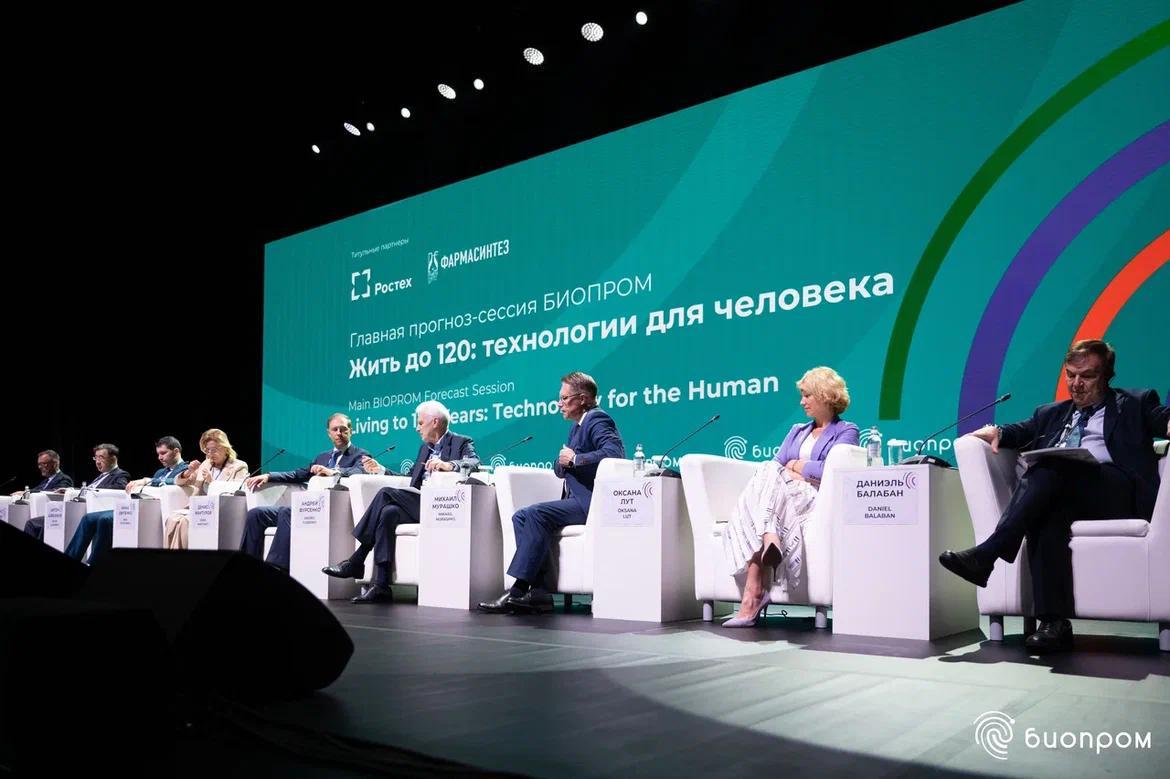
The Director of the WFP Centre of Excellence against Hunger in Brazil, Daniel Balaban, gave a lecture on “How artificial intelligence can be a key ally in achieving Sustainable Development Goal 2 – Zero Hunger and Sustainable Agriculture,” invited by the International Bioprom Forum: Industry and Technology for the Human Being. The event took place on October 7th and 8th in Russia.
Alongside authorities such as the Deputy Prime Minister of the Russian Federation, Denis Manturov, and the Minister of Agriculture of the Russian Federation, Oksana Lut, Daniel Balaban participated in a panel entitled “Living until 120 Years: Technology for Humanity.”
The panel highlighted that life expectancy on our planet increases every year thanks to the rapid development of public health, healthy nutrition, medical care, the use of big data and artificial intelligence. “This Forum addresses the role of biotechnology in solving challenges in the areas of health, sustainability, and food security,” said Daniel.
In his presentation during the Forum, Daniel emphasised that artificial intelligence is a tool that is making a fundamental contribution to ending world hunger. “Fighting hunger can mean more efficient methods of conserving water and soil, capturing rainwater for consumption, planting in accordance with the rainy seasons, or even using salt to preserve crops. In all these stages, AI can be a great ally,” he said.
He pointed out that since 2015, WFP has had the Innovation Accelerator hub, a US$200 million investment aimed at strengthening innovation in ecosystems. “We promote alliances with strategic partners, catalyse efforts and capacities, and facilitate resources with the goal of bringing innovation that creates a positive impact in the fight against hunger,” he explained.
For him, new technologies not only increase agricultural efficiency and productivity, but also promote sustainability and resilience within global food systems, without exception. “By integrating technological innovation with development strategies, the goal of achieving Zero Hunger becomes tangible.”
Daniel also stressed the importance of initiatives such as the creation of the Global Alliance against Hunger and Poverty, which will be launched in November during the G20 meeting in Brazil. “Many solutions created by new technologies have not yet been fully disseminated. Technology must be accessible to all and should allow the dissemination of information, not its concentration. Only in this way can we, in fact, generate quick and effective responses for the significant transformation that SDG 2 requires,” he said.

About the Forum
Around 2,000 people from over 20 countries attended the Bioprom Forum, including federal and regional authorities, representatives of research centres, agricultural and industrial production chains, and investors. Participants discussed innovations and trends in the biotechnology sector and the promotion of the development of new technologies and products.
The Forum included sections dedicated to alternative sources of raw materials and food, intelligent supply chains, green innovations and solutions in AgriTech and FoodTech, intelligent agriculture, as well as personalised and specialised nutrition.




